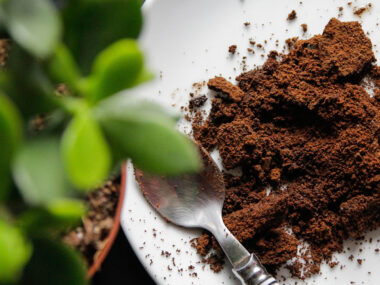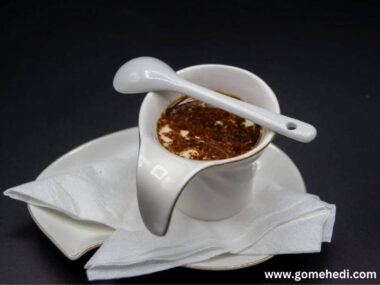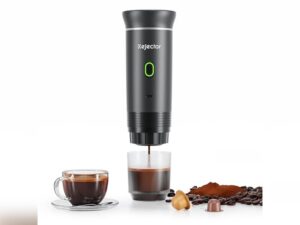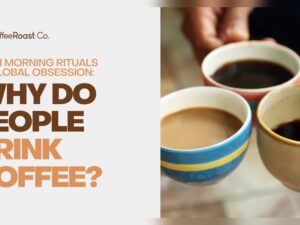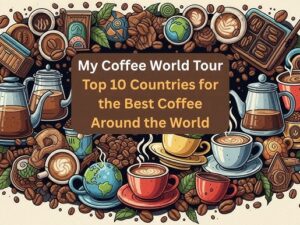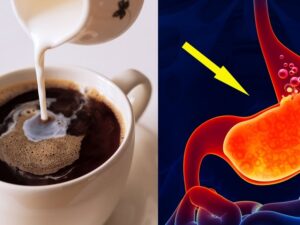Table of Contents Hide
- This is an introduction to the world's most expensive coffee.
- History of expensive coffee
- Civet types of most expensive coffee in the present world
- Factors that contribute to the high cost of coffee:
- Geographical regions are renowned for producing expensive coffee :
- Unique processing methods:
- The importance of rarity in pricing :
- How does demand affect pricing?
- Experiences of tasting expensive coffee:
- Sustainability and ethical implications of expensive coffee production:
- Compare the most expensive coffees:
- Interview with a coffee expert or connoisseur:
- Conclusions and recommendations:
This is an introduction to the world's most expensive coffee.
What is the most expensive coffee in the world? It is a matter of interest for coffee lovers.
Today, expensive coffee is a luxury in the eyes of connoisseurs and enthusiasts worldwide.
Premium coffees sit at the peak of a quality pyramid. At the bottom are low-end grocery store brands, often unremarkable. The journey ends with high-end, fair-trade certified options.
These top-tier coffees often have rare production methods and unique profiles. Their distinctiveness is reflected in their higher price tags.
In this conversation: How the world’s most expensive coffee is produced, what makes it so pricey, and what you like to drink.
Come along with me as we reveal what is so great about the best coffee on earth.
Overpriced coffee is an entertaining internet rabbit hole to fall into if you fancy yourself a caffeine enthusiast. Some types of coffee can be extremely rare and, as a result, quite costly, which leaves coffee lovers from all around the world at awe.
A curious customer entered a cozy coffee shop with no freshwater on a busy city street in hopes of finding something different. The barista was an expert when it came to rare and most expensive coffees. So he smiled at the customer, welcomed him, and suggested a cup of Hacienda La Esmeralda, which is one of those who are being chased all around the planet.
- A veritable fest of jasmine + bergamot + honey mingled and gyrated upon the customer’s tongue when they took their first sip. The smell of it filled the air and attracted another customer that wanted to know what smelled so good.
- Word spread quickly about the delightful coffee being served in tiny cups at the rundown spot. Soon, aficionados were making a sort of pilgrimage to taste the coffee, considered too good for even the finest places. As demand for the rare coffee grew, the shop transformed into a Mecca for those seeking the ultimate coffee experience.
- It was over multiple cups of the Hacienda La Esmeralda that friends sipped and tasted together with others. which cultivated an appreciation for how art and craftsmanship had put this extravagant coffee on their templates. Finally, the once humble coffee shop was reborn a sanctuary for those in with the know and a fervent appreciation of great coffee.
- I think the real enchantment of coffee lies in its myriad flavors and that every cup has a story to tell. From whence it came, how it was grown and roasted each telling part of the tale. Sarah is a coffee expert.
Sarah says to embrace taking a chance on exotic choices of coffee beans, “don’t be scared.” You might even start to appreciate the intricacies and skill involved in every cup.
History of expensive coffee
Expensive Coffee: The history of expensive coffee traces its lineage back all the way to the Old World, when coffee actually existed in Ethiopia’s verdant forests. In the legend, a goat herder named Kaldi discovered that after munching on coffee cherries, his goats became energetic. It was from this serendipitous discovery that coffee, a beloved beverage, originated.
Due to its stimulating properties, coffee quickly spread through Arabia and became an integral part of their culture. The Arabs established coffeehouses as places where people could gather and discuss various topics. In the 17th century, coffee made its way from the Arab regions to Europe, where it was favored by the wealthy and intellectual classes. This also marked the beginning of the first coffeehouses in major European cities, with Fair Trade Coffee becoming a key element in the coffee culture.
Java, Jamaica Colombia are but a few examples of the expansion of coffee plantations worldwide due to global demand. These regions birthed unique coffee varieties with a taste and aroma like no other, cementing the foundation of gourmet coffee.
The chase for specialty coffee has expanded into a hunt for precious beans grown in wild and cumbersome locations. True coffee lovers go after rare types like Geisha Coffee from Panama or coffee Luwak from Indonesia. Which are reputed to be amazingly delicious and not so often seen in the general market.
This highlights the timeless appeal of coffee and how only dedicated professionals can produce the very best. Each cup of expensive coffee tells a story, blending craftsmanship and art. It’s a testament to tradition and precision, refined over time, to create a perfect sip for those who truly appreciate this experience.
Civet types of most expensive coffee in the present world
Coffee Luwak : Coffee Luwak, also known as civet coffee, is one of the world’s most expensive coffees. Cives eat and excrete coffee beans, which results in a unique flavor profile.
Black Ivory coffee : Similar to coffee luwak, Thai elephants digest and excrete coffee beans to produce Black Ivory Coffee. This rare and luxurious coffee is known for its smooth and chocolate taste.
Hacienda La Esmeralda : Hacienda La Esmeralda, grown in Panama, is a highly sought-after coffee variety known for its floral and tea-like flavors. Produced meticulously, it commands premium prices at auctions.
Saint Helena Coffee : Grown on the remote island of Saint Helena in the South Atlantic Ocean, this coffee is renowned for its unique terroir, which results in a rich and exotic taste.
Blue Mountain Coffee: Produced in the Blue Mountains of Jamaica, this coffee is renowned for its mild flavor, balanced acidity, and velvety smoothness. Its limited production and high demand contribute to its high price tag.
Finca El Injerto: Grown in Guatemala, Finca El Injerto is a high-end coffee variety prized for its exceptional cup quality, with notes of floral, citrus, and chocolate.
Jacu Bird Coffee: In Brazil, Jacu birds consume ripe coffee cherries, excrete the beans, and then collect, clean, and roast them to produce a distinctively flavorful and pricey coffee.
These are just a few examples of the most expensive coffee types in the world, each offering a distinct and premium coffee-drinking experience for connoisseurs and enthusiasts alike.
Factors that contribute to the high cost of coffee:
Coffee bean cost is not the only thing that drives coffee prices so high. These reasons explain why some coffees cost more than others and are important to understand if you want to grasp how coffee at the broader scale of the industry functions. Below, we break down the high price of coffee into a variety of factors.
1. Unique Origins: Beans harvested from rare or small production regions also tend to go for more money due to their scarcity.
2. Unique Processing Methods: Unique Processing Methods Aging or fermenting coffee beans is an age-old art, and it can add a lot to the value of your product.
3. Labor-Intensive Harvesting : The expenses incurred by labor make manual processing of coffee beans high-cost.
4. Bean Grade: Better beans have a higher station’s cupping score (the tasting done after drying and cleaning of the cherries).
5. Ethically Sourced : Coffee with fair trade, organic or other sustainability certifications may have higher prices.
6. Popularity: Coffee from well-known roasters or regions often comes with a higher price, largely because of the brand’s popularity.
7. Limited Volume: Certain coffees are expensive because they can only be harvested in limited quantities or are naturally seasonal.
8. Transportation: If the coffee beans you are purchasing come in from a remote region or if they need to be choppered out of the rugged terrain, these costs will eventually raise your price.
Why The Price Of Coffee Beans Can Differ These all impact the pricing of coffee, which is why certain beans on the market are more expensive than others.
Geographical regions are renowned for producing expensive coffee :
Several countries are renowned for producing some of the most expensive and sought-after coffee beans. These regions are revered for their cultivation practices and ideal environments, which are unmatched elsewhere. Some of the most expensive coffee beans come from these key countries and regions.
- Ethiopia:
- Yirgache: The most likely contender to exhibit an amazing flavor profile that includes floral and fruity notes. This is one variety of Ethiopian Yirgacheffe coffee with delicate complexity.
- Sidamo: This widely respected region in Sidamo is home to coffees with high acidity, floral scents and beautiful bodies—prized by coffee snobs everywhere.
- Jamaica (Blue Mountain):
- Blue Mountains: Blue Mountains, Jamaica The Blue Mountain region in Jamaica is responsible for some of the highest and most expensive Jamaican coffee beans you could ever find anywhere on Earth. Beans from this region have a smooth mild flavor and combined with medium body, balanced acidity, they form full bodied coffee.
- Hawaii (Kona):
- Kona: In Hawaii, the Kona region of the islands is famous for its delicious and robust tasting Kona coffee. This coffe is grown in the rich volcanic soil of Kona and has a smooth, deep flavor profile with hints of nuttiness and chocolate.
- Panama (Boquete):
- Boquete : Boquete is known as a place that grows some of the world’s most expensive and coveted caffeinated berries. Which includes the Geisha variety that ensures its high price. Boquete coffees, with their outstanding flavor, floral fragrance, and terrific balance of fresh sweetness, are among the most expensive coffees available.
- Indonesia (Sumatra):
- Indonesia: With coffee types like Mandheling and Gayo, Indonesia is recognized for its full-bodied selection of coffees with very low acidity levels supported by earthy as well as spicy undertones. These unique traits make Sumatran coffees some of the priciest options available and, in terms, boost their popularity.
There are many places all around the world that have a great reputation for producing coffee beans. The climate of each region and the soil conditions specific to growing coffee have created a regional reputation for quality. That now demands premium pricing in international markets.
Unique processing methods:
The singular process employed makes expensive coffee beans cost so much. There are different special techniques, and each takes a certain number of steps with the goal of bringing more flavor characteristics into coffee. How these methods of persuasion are contributing to the premium pricing:
1. Natural Process: When coffee beans are dried, they take in fruity flavors, leading to a richer and more fruity taste.
2. Washed Processing: This method involves removing the coffee cherries before drying. Which gives the coffee a clean taste with a high acidity flavor profile.
3. Honey processing : As a midpoint between natural and washed, the beans are only de-pulped partially to then be dried with all or some of their fruit, allowing for sweetness, body & mouthfeel.
4. Exclusive Flavors: Anaerobic fermentation means that the beans are fermented with little to no oxygen, allowing them to produce unique flavors and intensities, thereby making your coffee is more expensive.
5. Extended Fermentation: Because the beans ferment for an extended amount of time, they are more complex and have a deeper flavor profile, which typically makes them pricier.
6. Ageing: Aged green coffee is tasted three times: with sparkling water, hot, and at room temperature, before being cupped or sent to the roastery. This aging process, done after harvest and during transport, helps develop unique flavors, but not all beans should be aged.
7.Roasting Methods: Unconventional roasting methods contribute to the high price of some coffees. For instance, some premium coffees are roasted over wood fires or sun-roasted on clay patios.
These nontraditional methods develop unique flavors and complexities in the coffee. They require intricate processing techniques, time, and expertise. This meticulous approach results in coffee beans with specific and distinctive taste characteristics, which is why they command a premium price.
The importance of rarity in pricing :
In the market, different prices are to some extent determined by how rare it is coffees. This is the way rarity impacts the valuation of coffee.
1. Increased Demand & Limited Supply: You’ll soon notice that some beans are harder for buyers to find. Beans from rare varieties or unique regions are in limited supply because they need very specific soil and often thrive only in certain seasons or locations. This rarity makes these coffees highly sought after, driving up their price.
2. Uniqueness: coffee lovers and connoisseurs of collections take pleasure in discovering the unique flavors from rare coffee bean types. This exclusivity, whether due to origin or processing method (or both), is part of the reason these beans come at a premium.
3. It is planted in very special circumstances: unlike common coffee types, some varieties need a particular cultivation method or specific climatic conditions to succeed. The cost of these beans is higher due to the lot their shareholders invest in growing their unique crops.
4. Demand : Ultimately, the rarer coffee varieties are ones that have high demand from consumers who seek after these beans for their exclusivity and quality. The limited availability of these rare coffees is only increasing customer interest.
5. High Flavor and Quality: Many of the world award winners are some sort of rare coffee because their flavor profile is exceptional along with quality. Since these beans are so rare, drinkers are required to pay a premium price in order to enjoy the distinctive and unforgettable taste.
6. Top Cup Scores: Certified coffees that rate highest in blind cupping for aroma, taste, and other quality characteristics are deemed premium. Rarest beans with the best cupping scores and thus come at a price, which you will pay for high-quality coffee.
In summary, the value of certain coffee varieties is largely due to their rarity and exclusivity. Factors such as limited supply, high demand, and challenging or costly production requirements contribute to their high worth.
Unique characteristics and flavors found only in these rare coffees further enhance their appeal. These elements combine to make these exceptional coffees highly sought after compared to standard varieties.
How does demand affect pricing?
High Demand: If people begin craving a particular kind of luxury coffee, the price for that will rise exponentially as well. Market forces may drive the price up for some breeds because demand is high.
Rare: Luxury coffees that are hard to come by or only available in limited quantities, can lead others who cannot get their hands on the exclusive treat to start clamoring for it. And the limited availability can only push prices up.
Brand Image: Many luxury coffee brands have a well-earned reputation for upholding quality and exclusivity. Those brands that are in demand cause their prices to soar since people pay for the name and experience.
Exotics Flavors: Luxury coffees may also have exotic, hard-to-find flavors that will attract coffee lovers. People want to create this, so because of their demand, these coffees could be sold at a high price!
Fashionable Varieties: the development of espresso traits can also all together affect demand. Since it is a luxury coffee, if it becomes trendy for any particular reason, then more people will start desiring to drink that coffee. which in turn makes the price go up because of higher demand.
Finally, the cost of luxury coffees is influenced by consumer demand. It incorporates the high demand price that people will pay a premium for if they love one single coffee, need it, and are willing to spend at this level of availability.
Experiences of tasting expensive coffee:
As you sip the coffee, which costs a pretty penny more than most other options, it should feel exclusive and surprisingly high-class! Rich people’s coffee taste is owed to the following key features:.
Top-grade beans : Most of the high-quality, expensive coffees are crafted from carefully selected and processed premium grade coffee beans. This is reflected in a more delicate, varied flavor of the coffee because of the superior bean Q grade.
Unique Region: Premium coffee often comes from select regions or microclimates that give the beans distinct flavors. It happens in unique terroirs and gives the coffee its complexity as well as a bit of depth.
Special Processes: More expensive coffees are more likely to be produced by special processing techniques like natural, washed or anaerobic fermentation. In the daytime, Robusta beans get treated to augments in flavor and scent that give them breath of nuance.
Rich Aroma and Complexity: The aroma present in costly coffee is truly wonderful and provides a sensual appeal. With its floral, fruity with chocolate and nutty overtones—complicated but really flavorful notes that enrich the coffee.
Acidity and Balance: The acidity in premium grade coffee is usually a clear, balanced acid that functions as an additional flavor to the bean. The acidity of cheap coffee is commonly high and sharp, which tends to be a great point (for the cost) because it brings brightness in your brew.
Rich and Creamy Mouth Feel: An expensive cup of coffee is sought after because it leaves that luxurious feeling with a beautifully smooth sensation as you drink too. These coffees have an almost languid, silky texture and are soft on the drinking palate.
Delicate Notes: Those little hints of flavours that slowly bloom on your palate, you should anticipate to taste from a higher end coffee. The complex flavor notes slowly reveal themselves, each with their own layer of depth and refinement.
Conclusion: Expensive coffee tastes unique because this aroma plays a crucial part in aesthetics, which distinguishes the origin of coffee beans and their processing methods as well.
Sustainability and ethical implications of expensive coffee production:
That being said, growing expensive coffee beans comes in both ethical ways and sustainability vibes to protect the livelihoods of farmers while also keeping an eye on our planet, as well as protecting something that we all truly love—a good cup (or five…who am I trying to kid) of strong & flavours some filtered-brewed black liquid. Here are the lessons by app that I have drawn from these points:
- Fair Wages for Farmers:
- It can be used to pay fair wages on its own or coupled with others as a means of ensuring that coffee farmers are provided for and amply compensated.
- Environmental Conservation:
- Just some of the practices around responsible sourcing by niche brands include ecosystem-friendly shade-grown cultivation, organic farming methods and advanced water conservation.
- Community empowerment:
- So besides providing quality coffee beans, support social projects and approaches to the community in coffee origin.
- Certifications:
- There are different labels and certifications of luxury coffee beans, such as Fair Trade and Rainforest Alliance Organic, that reflect their common production.
- Biodiversity Preservation:
- Biodiversity Conservation: Luxury coffee farms often maintain a wide range of ecosystems and plant shade trees that preserve natural wildlife habitats.
- Quality over Quantity:
- There are a number of companies that still choose to do things right, and they work on small scale releases with the most premium beans, taking in all possible care and firing for flavour and sustainability.
- Transparent supply chains:
- Whereas ethical luxury coffee brands tend to keep a transparent supply chain so that consumers can trace the origins of their purchase and understand what effect this has.
Through ethical and sustainable practices such as these, luxury coffee producers can uphold their social responsibility to environmental stewardship in the pursuit of a more conscientious way of producing premium quality products that are here for the long haul.
Compare the most expensive coffees:
They identify the top price-and-quality performers from among standard-issue beans. A comparison, as opposed to an overview of their key differences:
Price:
Although more common types usually cost a few to tens of dollars per pound, the most expensive coffees can fetch hundreds of dollars per pound. Luxurious coffees cost a lot because they are rare, of high quality and difficult to produce.
Quality:
The beauty of luxury coffees is their high-quality, multi- dimensional flavor complexity with elegant notes. These beans are normally handpicked and produced with meticulous processing throughout various regions around the world renowned for their superior coffee quality. This means the usual suspects might be dishing out a standard flavor profile but at least carry less complexity.
Processing Methods:
Some coffees that are relatively expensive to produce— natural processing, anaerobic fermentation, or long-term aging beans—might set off the detector as well. On the other hand, everyday versions often have standard processing methods that might not bring as much depth or complexity to the beans.
Origin and Terroir:
Luxury coffees are often sourced from specific regions or micro climates, giving the beans a unique flavour profile. The terroir, soil, and climate of these regions are what make the taste profile so dramatically unique that it typically becomes an expensive cup. Even common denominations may have a different expression of origin and terroir.
Exclusivity:
Coffee lovers and collectors of coffee because it is prone to rareness, hence, most expensive posh coffees are present. The beans that coffee connoisseurs, and collectors often seek — they usuallycoffee, produced in lower quantities. More typical kinds, on the other hand, are readily available to a much bigger market of customers.
Tasting Experience:
In comparison to everyday coffee what takes place when you sample the top dollar items is many times another whole world. This is when luxury coffees provide a beautiful sensory boat that has flavor notes like you read in an intricate love story, as well balanced acidity and silky smoothness to slurp your way why these coffee are much more than regular cups.
Due to their price, quality of coffee and processing type, production altitude, and unique flavor experience, there is a big difference in the most expensive kind of coffee compared with any well-known others. Last is the luxury variety: these coffees fetch a higher price due to their quality, while the commodity group covers both everyday prices and tastes.
Interview with a coffee expert or connoisseur:
Interviewer: Hello, thank you for taking some time to talk with us. Would you go ahead and introduce yourself and tell us who you are/history in the coffee industry?
Expert : Good day (smiling) Expert. It is my pleasure Hi there, my name is Sarah and I have been working in the coffee field for over a decade. coffee pro careers barista — coffee roaster — consultant my love for specialty and high-end coffee.
Interviewer: What is so enchanting in the world’s most expensive coffee?
Expert: The most expensive coffee on the planet is probably made that way because of its exclusivity, rarity and craftsmanship. These premium types of coffee attract fans for their unique flavors, aromas and the whole drinking process.
The elements of luxury are involved when these tastes come together, inspiring people to pay $ for the novelty hotshot simply so they can aspire to an espresso that actually stands out.
Interviewer: Do you remember a particularly expensive coffee or an inexpensive one that was very rare?
Expert: One of the most memorable experiences was tasting a fermentation from Geisha Coffee Panama. The flavor profile of the coffee was astounding in terms of its complexity, delicate floral tones with bright acidity, and a lingering silky body in the mouth. A cup of coffee which reflected the talent and artisanship done by its producers like no other.
Interviewer: Why is it important for coffee lovers to try the most expensive coffees even if they have high prices?
Expert: Testing out the priciest coffees gives drinkers a very different perception as well as provides them with an opportunity to broaden their palettes by understanding. Each cup of coffee gives a hint of the in-depth and complex variety that this caffeine has. One which is the epitome of representative quality as well as excellence.
Although it should not be an everyday gift to ourselves. The experience of enjoying a well-executed coffee is known by every enthusiast and calls attention even from those who think that one simply good flavor among them.
It was great having you and hearing your expert opinion on why the priciest coffee appeals to us most. Thank-you Interviewer: Thank you for your time.
Expert: Thanks so much for having me. I enjoyed speaking about the incredible world of luxury coffee.
Conclusions and recommendations:
So, to sum up, you can say that the world’s most expensive coffees are defined by their quality and exclusive taste, along with the luxury of it.
These types are considered exclusive because they require long ripening times, few plants give a good yield per square meter, and the production creates an experience unlike any other in the senses.
So for all those genuinely compelled by the interest of this costliest coffee in the world, here are a few top-notch recommendations.
Experiment and widen your horizons: Now is the time to enter into premium brand coffee and explore an ocean of luxury coffees from around the world.
Research and learn: Read about where some of the most expensive coffees come from, how they are processed or roasted, and what flavors of coffee you might expect.
Buy From Trustworthy Sources: When buying luxury coffees, be sure that they are ethically sourced and produced in a sustainable manner while also being of exceptional quality.
Experience the taste: If you are lucky enough to be able to afford the world’s most expensive coffee, then make sure you take your time tasting each sip. And enjoy all of those exotic undertones that often set these coffees apart from more common varieties.
Tell us: Share your take on luxury coffee with fellow travelers. Who also savor fine brew and the rushes of pleasure that can come from spending this much money for a sip.
By following these tips, coffee lovers can explore a unique world of artistry and rare, expensive beans. Each cup offers a chance to enjoy unforgettable coffee and awaken your taste buds to a deeper appreciation of this beloved drink.
Mehedi Hasan
As a distinguished affiliate marketer specializing in the dynamic realm of kitchen appliances, Mehedi Hasan expertly navigates the culinary landscape. With a passion for quality and functionality, he curates valuable insights, guiding audiences towards informed choices. Embrace a world of culinary excellence with Mehedi Hasan, your trusted companion in the kitchen innovation journey.



